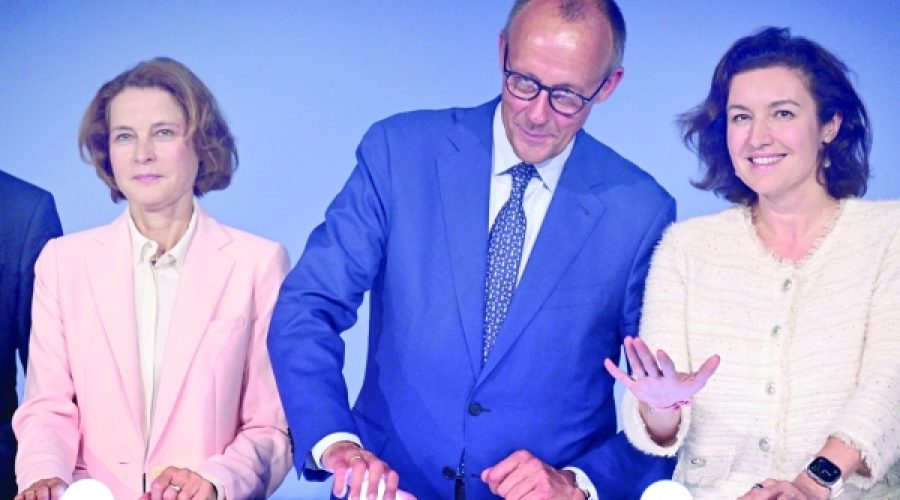Europe’s Fastest Supercomputer: How This Technological Advancement Will Transform AI Investment Opportunities in Oman
Jülich, Germany: German Chancellor Friedrich Merz announced on Friday that Europe has the potential to advance in the global artificial intelligence race, launching the continent’s most powerful supercomputer, Jupiter.
During the inauguration, Merz emphasized the intense competition between the United States and China for dominance in an AI-driven global economy. He remarked, “We in Germany and we in Europe have every opportunity to catch up and then keep pace.”
Jupiter, located in Jülich, western Germany, occupies a facility the size of half a football pitch and is equipped with approximately 24,000 Nvidia chips, popular in the AI sector. Experts claim it is the first supercomputer in Europe that can be considered competitive in the international arena for training AI models, boasting a computation power equivalent to one million smartphones.
Merz stressed the importance of developing sovereign computing capabilities in Germany and Europe to remain competitive and secure. The 500-million-euro ($580-million) supercomputer will have diverse applications, extending beyond AI. It will assist in creating advanced climate forecasts that can predict extreme weather events, as well as facilitate medical research and studies related to energy transitions. Half of the funding comes from the European Union, with the remaining portion sourced from Germany.
"This is a leap forward in computing performance in Europe," said Thomas Lippert, head of the Jülich centre, noting that Jupiter is 20 times more powerful than any other computer currently in Germany. Despite this advancement, Europe still lags behind the US and China; a Stanford University report noted that American institutions produced 40 notable AI models in 2024, compared to 15 from China and merely three from Europe.
Emmanuel Le Roux, head of advanced computing at Eviden, a subsidiary of French tech company Atos, highlighted Jupiter as the largest artificial intelligence machine in Europe. The consortium behind the project includes Eviden and the German group ParTec.
Jose Maria Cela, a senior researcher at the Barcelona Supercomputing Center, described Jupiter as a "very significant" step for training AI models in Europe, indicating that larger computers yield better AI models. Large language models (LLMs), which underpin generative AI technologies like OpenAI’s ChatGPT and Google’s Gemini, rely on vast text datasets for training.
However, reliance on Nvidia chips underscores a continued dependence on US technology amid rising concerns about US-EU relations.
Jupiter’s capabilities extend well beyond AI training. Researchers aim to improve long-term climate forecasting, potentially extending predictions from a decade to 30 or even 100 years. This would enhance the accuracy of forecasting extreme weather events. Other areas of potential research include realistic brain simulations to aid in developing treatments for conditions like Alzheimer’s, and optimizing wind turbine designs by simulating air flows.
Estimated to require around 11 megawatts of power—equivalent to the energy consumption of thousands of homes or a small industrial plant—Jupiter is touted as the most energy-efficient among the world’s top computer systems. Its operators report that it employs the latest energy-efficient hardware, water-cooling systems, and utilizes waste heat to warm nearby buildings.
Special Analysis by Omanet | Navigate Oman’s Market
The inauguration of Europe’s fastest supercomputer, Jupiter, marks a significant shift in global AI competitiveness, presenting new opportunities for businesses in Oman to leverage advanced computing power for innovation. As Europe seeks to close the AI gap with the US and China, Omani investors and entrepreneurs should consider collaborative ventures in tech and research, potentially tapping into European partnerships that enhance local capabilities and drive growth in sectors like renewable energy and climate forecasting. However, the reliance on US technology within Jupiter serves as a reminder of the risks associated with supply chain dependencies, urging Omani firms to foster self-reliance and diversify their tech sources.



